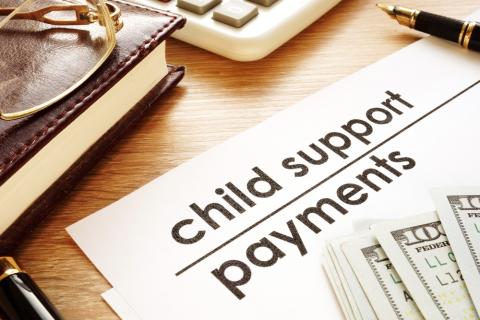
We have previously discussed the potential implications of structured settlements in spousal support cases (see our discussion of Hunks v. Hunks). But what are the implications for structure recipients who have child support obligations? The Ridley v. DeRose case gives us some insight.
Case Details
Mr. DeRose suffered serious burns in an accident when he was eight years old, which resulted in a settlement that provided him with a structured settlement including lifetime, indexed payments beginning in 1982. Later in his adult life, Mr. DeRose entered a common-law relationship with Ms. Ridley, and together they had two children. During his relationship with Ms. Ridley, Mr. DeRose used his structure funds to pay for family expenses, and spent very little of the funds on medical care and therapies to address his injuries. The spouses separated, and negotiated a Separation Agreement. Mr. DeRose began to pay child support consistent with that Separation Agreeement, but Ms. Ridley felt that the payments were too low and petitioned for increased monthly child support.
The Court could not determine from Mr. DeRose’s personal injury settlement documentation what portion of the settlement (or structure payments) was intended to address future income loss versus what was intended to address future care. Additionally, Mr. DeRose’s personal injury lawyer had passed away, so there was no way to get further clarification on the particulars of the settlement.
The Court found that the nature of the settlement monies used to fund the structure was less relevant than how the structured settlement payments were being spent. Because Mr. DeRose had historically not held paid employment, and spent most (if not all) of each structure payment on day-to-day living expenses for his family, it ruled in favour of Ms. Ridley and ordered Mr. DeRose to increase his child support payments.
What Does This Mean for Structured Settlement Recipients?
The ruling in Ridley v. DeRose confirms that a Court is likely to treat structure payments in a child support case as it would in a spousal support case. That is, if the structure payments are being spent like income during the marriage, payments will be considered income for the purposes of calculating child support after separation occurs.
The Court is predisposed to look at every source of funding it can in meeting the support needs of dependent children. In cases such as these, there is an unavoidable intersection between personal injury settlements and family law matters.
What has yet to be seen is a decision by a Court as to how structure payments spent on care and rehabilitation needs are treated. Arguably, if the structured settlement payments are NOT being used as income to support a family, but are spent on specific care requirements arising from the personal injury, the structure payments may not be viewed as income for purposes of child or spousal support consideration.
The key point following the recent decisions of the Courts is that a structured settlement gives an individual the best chance of preserving settlement funds for their own use.
The ruling in Hunks v. Hunks and decisions confirming it have established that a structured settlement is NOT matrimonial property. Spousal support and child support are generally not permanent obligations.
Mr. DeRose will have to pay child support for the next few years, but his child support obligation will eventually end.
Thereafter, his structured settlement payments will continue undisturbed on a completely tax-free basis for as long as he remains alive.
The decision to structure a portion of a personal injury settlement can benefit a claimant long after the settlement documents are signed. Ensure your client has considered the impact a structure can have on their circumstances if they are involved in a family law matter.